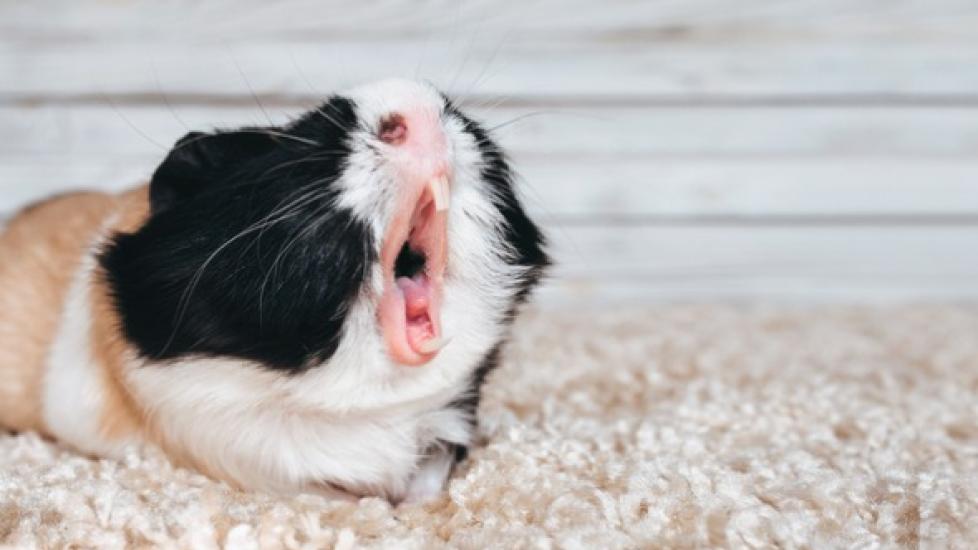Dental Diseases in Guinea Pigs
Malocclusion and Other Dental Diseases
Guinea pigs suffer from various kinds of dental diseases, the most common being improper alignment of teeth, otherwise known as malocclusion. Another dental disease is slobbers. This occurs when a guinea pig's teeth become overgrown, making it difficult to swallow or chew, and causing the animal to salivate more than necessary. These and other dental diseases require immediate veterinary care, as they can lead to secondary complications, if left untreated.
Symptoms
- Improper alignment of the teeth
- Weight loss
- Bleeding from the mouth
- Oral abscesses
- Sinus infections
- Difficulty eating (e.g., bits of food can be seen coming out the side of the mouth)
Recommended Products
Causes
A guinea pig's teeth continuously grows throughout its life. And when its teeth or jaws are misaligned, the teeth can become overgrown, causing chewing or swallowing difficulties and producing excess saliva. This condition is sometimes referred to as slobbers. Meanwhile, reasons for malocclusion include heredity, injury, or dietary imbalances, such as a lack of vitamin C or of certain minerals.
Diagnosis
Your veterinarian will conduct a thorough physical examination and check your guinea pig’s mouth for any kind of dental diseases or abnormalities. In the case of malocclusion, the diagnosis is made when the animal's teeth are not properly aligned. You veterinarian may also ask for the guinea pig's dietary history.
Treatment
If your guinea pig is slobbering or drooling, your veterinarian will evaluate this problem carefully. The molars in the back of the mouth are often the cause for this problem, even if the guinea pig's front teeth are normal. Some teeth may need to be clipped or filed to help your pet's jaw close properly. If the problem continues, monthly dental visits with your veterinarian may be necessary. Your veterinarian may also prescribe calcium and other vitamin and mineral supplements if the guinea pig has nutritional deficiencies.
Living and Management
Regularly administer the medications prescribed and diet formulated by your veterinarian to help remove the dietary imbalances. In addition, bring your guinea pig into the veterinarian's office for its regular follow-up appointments.
Prevention
Malocclusion and dental diseases developing due to dietary reasons can be prevented by feeding your guinea pig a well-balanced, nutritious diet, and supplementing any minerals or vitamins the animal may be lacking in.
Featured Image: iStockPhoto.com/Oleksandr Shchus
